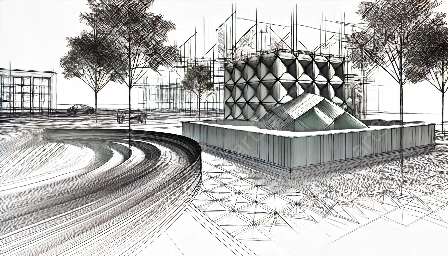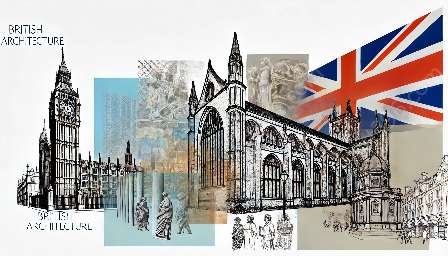Architecture plays a crucial role in shaping the world we live in, and with this influence comes a set of ethical considerations that architects must navigate. In this topic cluster, we will delve into the intersection of architecture and ethics, exploring how design decisions impact society, the environment, and human well-being. We will also consider the role of criticism in upholding ethical standards within the field of architecture.
The Impact of Architecture on Society
Architecture is not only about creating functional and aesthetically pleasing structures but also about designing spaces that enhance the quality of life for the individuals and communities that interact with them. Ethical considerations in architecture involve ensuring that designs are inclusive, accessible, and culturally sensitive. Additionally, architects must consider the social implications of their projects, including issues of gentrification, displacement, and social equity.
Environmental Responsibility in Architecture
Architects are increasingly tasked with creating sustainable and environmentally friendly designs. This involves considering the life cycle of materials, energy efficiency, and the overall ecological impact of a building. Ethical architects strive to minimize environmental harm, promote energy conservation, and integrate green technologies to create spaces that coexist harmoniously with the natural world.
Human Well-being and Ethical Design
Buildings and public spaces have a profound effect on human well-being. Ethical architects prioritize the health and safety of individuals by designing spaces that are conducive to physical and mental well-being. This includes considerations such as natural lighting, air quality, accessibility, and ergonomic design. Furthermore, ethical architects often engage with communities to understand their needs and desires, ensuring that their designs promote inclusivity and a sense of belonging.
Architecture Criticism and Ethical Accountability
Architecture criticism plays a vital role in holding architects and their designs accountable to ethical standards. Critics assess the social, cultural, and environmental impact of architectural projects, shedding light on both successes and shortcomings. By providing feedback and critique, architecture criticism contributes to the continuous improvement of ethical standards within the profession, pushing architects to consider the broader implications of their work and inspiring them to strive for excellence in both design and ethics.
Conclusion
Ethical considerations in architecture are multifaceted, encompassing social, environmental, and humanistic dimensions. By understanding the ethical responsibilities inherent in architectural practice, designers can strive to create spaces that not only inspire and delight but also contribute positively to the world around them. Through ongoing dialogue and critique, the field of architecture can continue to evolve ethically, shaping a built environment that resonates with integrity and compassion.





























































